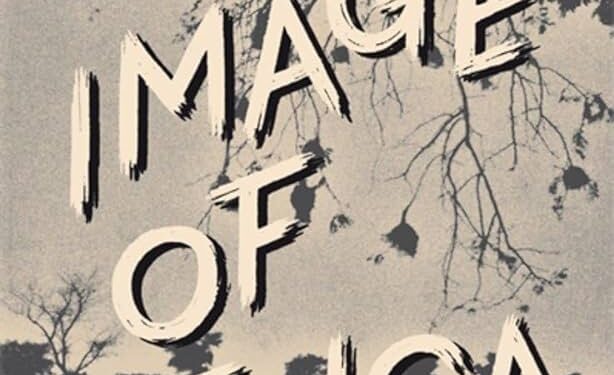An Image of Africa Summary
- Racism:
- The central theme revolves around the pervasive racism embedded in “Heart of Darkness.” Achebe argues that Conrad’s portrayal of Africans reflects deep-seated prejudices, perpetuating stereotypes that dehumanize and degrade the African characters. The essay critically examines how racism manifests in both overt and subtle ways throughout the novella.
- Eurocentrism:
- Achebe addresses the Eurocentric perspective prevalent in “Heart of Darkness,” where Africa is seen through the lens of European colonialism. This theme explores how Conrad’s narrative reinforces the idea of Africa as a mysterious and primitive “Other,” lacking its own agency and history but instead existing to serve European interests.
- Colonialism:
- The theme of colonialism is integral to Achebe’s critique, emphasizing how “Heart of Darkness” perpetuates a narrative that justifies and romanticizes European colonial endeavors. Achebe examines the power dynamics and the narrative’s implications on the broader discourse surrounding colonialism and its impact on Africa.
- Othering:
- Achebe discusses the concept of “Othering,” where the African characters in “Heart of Darkness” are treated as an exotic and inferior entity. This theme explores how the novella reinforces the dichotomy between the perceived civilized European self and the dehumanized African other, contributing to a distorted portrayal of African societies.
- Language and Stereotypes:
- Achebe critically analyzes Conrad’s use of language, highlighting how linguistic choices reinforce racial stereotypes. The theme explores instances where Africans are portrayed as less than human, using language that diminishes their intellect and reduces them to a primitive state.
- Absence of African Agency:
- Achebe critiques the absence of agency among African characters in “Heart of Darkness.” The theme underscores how Conrad’s narrative denies these characters individuality, personal histories, or motivations, reinforcing a narrative where Africans are passive objects rather than active participants in their own stories.
- Cultural Hegemony:
- Achebe addresses the cultural hegemony inherent in “Heart of Darkness,” pointing out how the novella positions European culture as superior and dominant. This theme explores the implications of cultural imperialism, where African cultures are dismissed or misrepresented in favor of a Eurocentric worldview.
- Impact of Stereotypes:
- A central theme in Achebe’s critique is the profound impact of stereotypes on both literature and societal perceptions. Achebe contends that such stereotypes contribute to the dehumanization of Africans in literature and, by extension, influence broader perceptions and attitudes toward African cultures.
Conclusion
In conclusion, Chinua Achebe’s An Image of Africa Racism in Conrad’s Heart of Darkness provides a thorough critique that examines the novella by Joseph Conrad’s deeply ingrained racism, Eurocentrism, and colonialism. Through a careful examination of issues like language stereotypes, the dehumanization of Africans, and the lack of agency, Achebe shows how “Heart of Darkness” reinforces negative notions that were common throughout the colonial era.
The essay emphasizes the influence of stereotypes on literature and cultural perspectives while challenging readers to interact critically with literary works. Achebe urges a reevaluation of the narratives that have contributed to skewed depictions of African cultures and pushes for a more nuanced understanding of them.
In closing, Achebe’s analysis highlights the need for readers to confront and question the dominant biases in literary works while also encouraging contemplation on the larger ramifications of colonial literature. The article serves as a call to action for a truthful and inclusive representation of Africa and its people in literature, one that will deepen readers’ understanding of the rich diversity of cultural viewpoints.How does Chinua Achebe rehabilitate the image of Africa in his novel Things Fall Apart?,What is Chinua Achebe’s educational background?,What did Chinua Achebe do?,What does Achebe’s use of the phrase laying a claim suggest about his perception of Conrad?,Do you think that Africa is a place of negativity in Heart of Darkness?,Who is the father of African literature?,
FAQ:
1. Why does Achebe criticize “Heart of Darkness”?
Achebe criticizes “Heart of Darkness” for perpetuating racist stereotypes and Eurocentric perspectives, particularly in its dehumanizing portrayal of Africans. He contends that the novella contributes to harmful ideologies prevalent during the colonial era.
2. What is the impact of stereotypes in literature, according to Achebe?
Achebe argues that stereotypes in literature, as exemplified in “Heart of Darkness,” have a profound impact on shaping societal perceptions. Such stereotypes contribute to the dehumanization of certain groups, influencing broader attitudes toward diverse cultures.
3. How does Achebe address linguistic choices in Conrad’s novella?
Achebe critically examines Conrad’s use of language, highlighting instances where linguistic choices reinforce racial stereotypes. He points out how the language diminishes the intellectual capacity of Africans, perpetuating harmful stereotypes.
4. What does Achebe mean by the “Othering” of Africans in “Heart of Darkness”?
“Othering” refers to the process of treating a particular group as different or exotic, often with a negative connotation. Achebe argues that “Heart of Darkness” engages in “Othering” by portraying Africans as an inferior and mysterious “Other,” reinforcing a distorted view of African societies.













